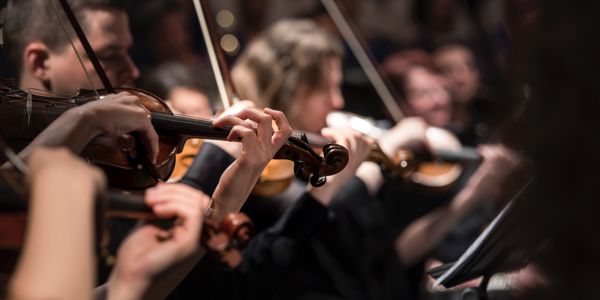The Power of Musical Theater: A Symphony of Emotion and Narrative
Musical theater, a captivating genre in the performing arts, combines music and storytelling to create a unique and emotionally engaging experience. It is celebrated for its ability to convey complex narratives and deep emotions through music. The article explores how music serves as a storytelling vehicle, evokes a wide range of emotions, develops characters, creates unforgettable scores, and complements visual spectacle. It also highlights how musical theater fosters a sense of community and connection among audiences, transcending individual differences. Overall, musical theater showcases the enduring power of music in storytelling and its profound impact on the human experience.
Udgivet: 30 okt.. 2023 | Sidst opdateret: 30 okt.. 2023
In the world of performing arts, musical theater stands as a unique and captivating genre, merging the magic of music with the art of storytelling. Broadway and theatrical productions have long been celebrated for their ability to use music to convey complex narratives and invoke deep emotions in audiences. In this article, we will explore how the marriage of music and drama in musical theater creates an unforgettable experience that transcends the boundaries of traditional entertainment.
The Art of Storytelling
At the heart of musical theater lies the art of storytelling. These productions weave intricate narratives, often exploring themes of love, loss, ambition, and the human condition. Music becomes an indispensable tool in conveying these stories. Whether through sweeping overtures, poignant ballads, or lively ensemble numbers, the music in musical theater acts as a vehicle that carries the plot forward and delves into the characters' innermost thoughts and emotions.
Emotion Through Music
One of the defining features of musical theater is its capacity to evoke a wide range of emotions through music. The melodies, harmonies, and lyrics work in tandem to elicit laughter, tears, excitement, and introspection. A well-placed song can bring an audience to the brink of tears, while an upbeat dance number can lift their spirits in an instant. For example, the heartbreaking "Empty Chairs at Empty Tables" from "Les Misérables" or the exuberant "Defying Gravity" from "Wicked" are moments that resonate deeply with theatergoers.
Character Depth and Development
The characters in musical theater are brought to life through their musical numbers. These songs serve as windows into the characters' souls, revealing their desires, fears, and motivations. The development of characters becomes a symphony of transformation, as they evolve and grow with the music. The transformation of Jean Valjean in "Les Misérables" or Elphaba in "Wicked" is beautifully exemplified through their musical journeys.
Unforgettable Scores
The scores of musical theater productions often become timeless classics in their own right. Composers and lyricists like Stephen Sondheim, Andrew Lloyd Webber, and Lin-Manuel Miranda have created musical masterpieces that continue to enchant and resonate with audiences for generations. These scores not only enhance the storytelling but also leave an indelible mark on the cultural landscape.
Visual Spectacle
In addition to the music and storytelling, musical theater productions are known for their visual spectacle. Elaborate costumes, intricate set designs, and breathtaking choreography enhance the overall experience. The marriage of music with stunning visuals creates a multisensory extravaganza that captivates and immerses audiences.
Community and Connection
Musical theater fosters a sense of community among audiences. Sharing the experience of witnessing a live performance with a room full of strangers who are collectively moved by the same story and music is a unique and powerful aspect of this art form. It creates a bond that transcends individual differences and unites people in their shared appreciation for the performing arts.
Conclusion
Musical theater is a remarkable form of entertainment that harnesses the emotive power of music to convey intricate narratives and invoke profound emotions in audiences. Broadway and theatrical productions continue to captivate theatergoers with their ability to transport them into the lives of characters, exploring the complexities of the human experience through song and drama. As the curtains rise and the orchestra plays, the magic of musical theater unfolds, reminding us of the enduring power of music in storytelling and the profound impact it has on our hearts and souls.



